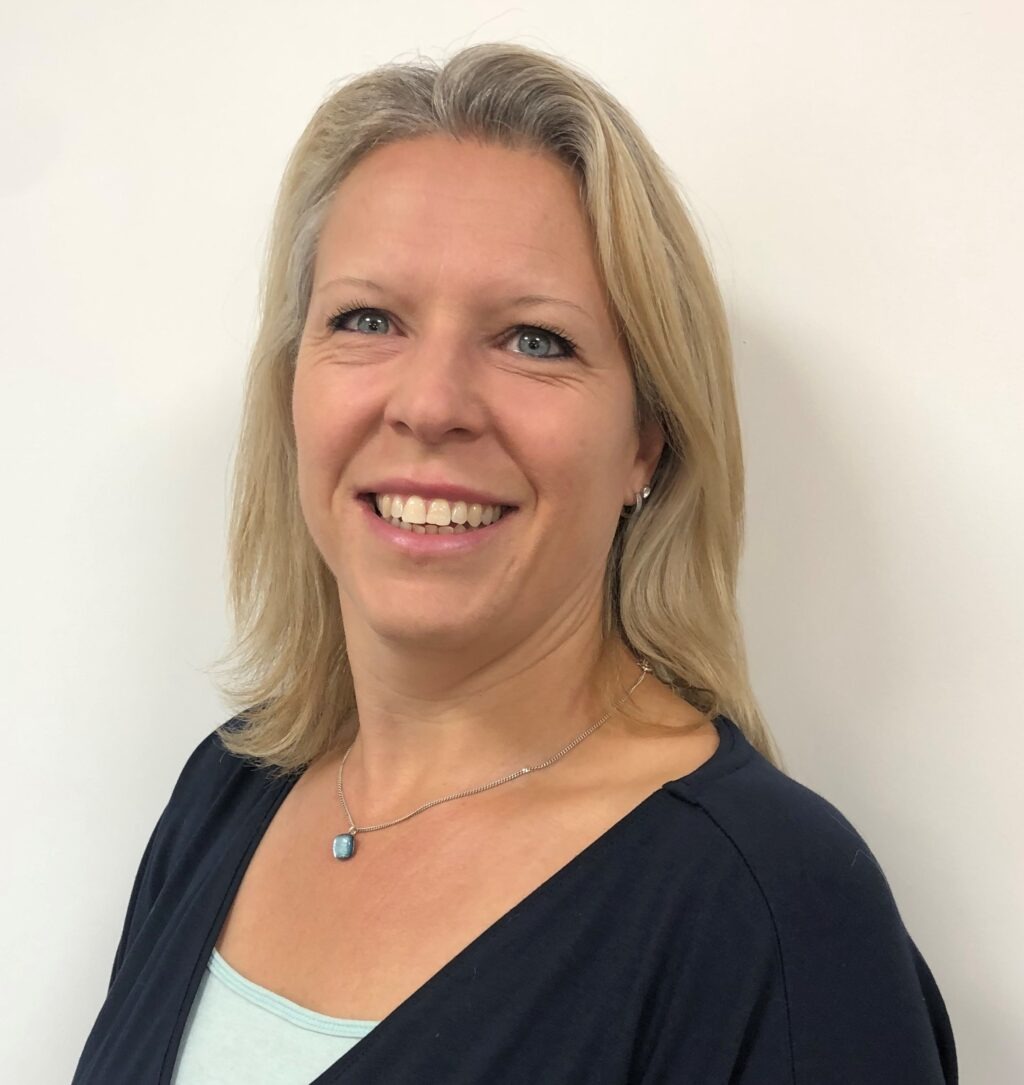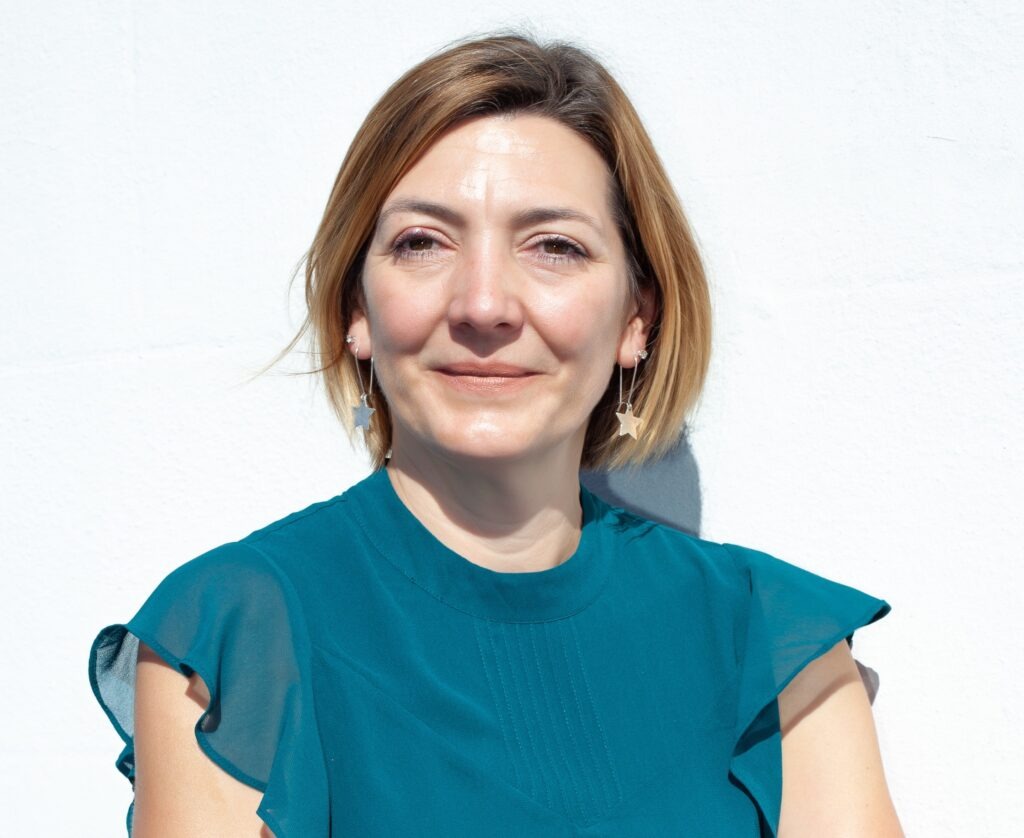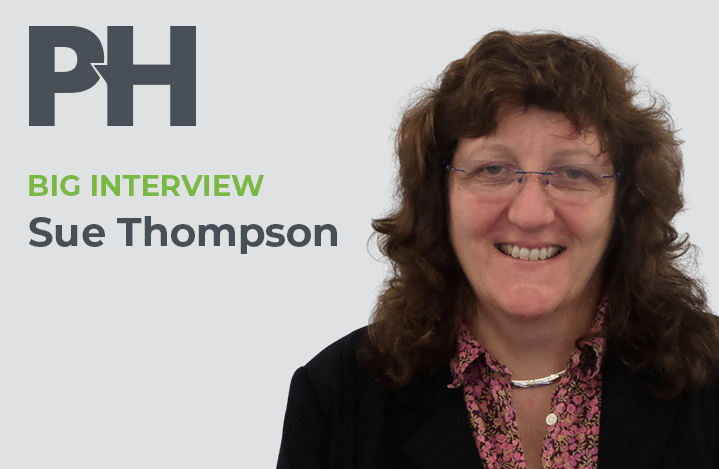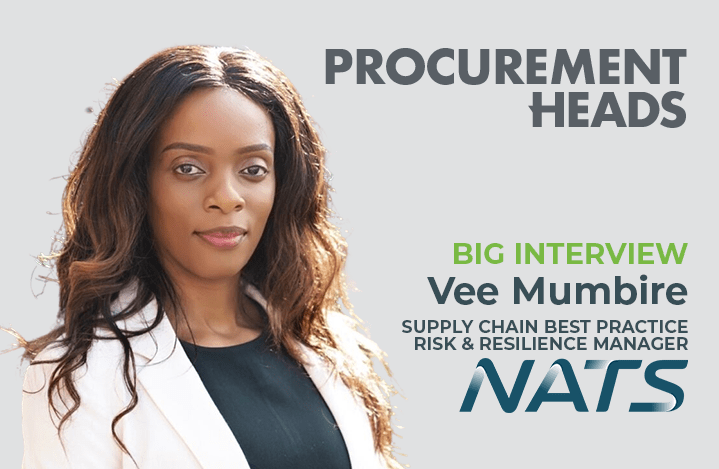So, I was delighted that Aster Commercial spoke with Procurement Heads recently, to hear more about their careers and gain their insight.
Lucy: I think it’s really important that we push the message of Women in Procurement, or women in industry more generally, so thank you for the opportunity.
I’ve been working in procurement roles for about 20 years, following a degree in maths and economics. A commercially oriented graduate placement evolved into a procurement career. It’s fair to say procurement didn’t stand out as my dream future career when I was younger, but it’s a very dynamic, challenging, intellectually stimulating and exciting industry to be in.
I’ve worked in most private sector industries; manufacturing, retail, financial services etc, predominantly in the IT category space – although I’ve dabbled elsewhere over the years.
My last role was as Director of Procurement at Clarks, which as a company demonstrated a real sponsorship of empowering women in leadership roles. I worked alongside many women in Director and C-Suite positions making it a fantastic organisation to be in.
We set up Aster Commercial about three years ago, we are three strong women leading our own business and delivering in procurement.
Sarah: There are some similarities between my experiences and Lucy’s and I’ve been working in procurement roles for about 25 years now, I did a business and French degree, and then decided to look for a graduate programme and ended up working at Jacob’s Bakery, which appealed to me as it was part of a French organisation at the time.
I had to apply in a certain discipline, so there was sales, marketing, finance and then there was procurement and logistics, which I’d never really heard of, but it mentioned analysis and numbers, which seemed to fit neatly with the things I liked.
About a month after I joined they made a lot of people redundant, so I didn’t finish the graduate scheme and became a Buyer within about six months of joining and carried on from there.
I’ve worked in manufacturing, I worked at Dyson in the early days, food manufacturing, mainly buying direct materials. I then moved into indirects and worked in financial services. I have done some contract work, before moving back into a permanent role at Clarks, but I really enjoy working for myself as it gives me the ability to work with a variety of clients and sectors and procurement activity.
So setting up Aster was great for me, and I can’t see myself working in a permanent role for somebody else!
Emily: It’s great to discuss Women in Procurement. I think we would all agree that we’ve historically worked in a predominantly male-dominated environment, equally we’ve all come across some fantastic female role models who have inspired us and put us on this journey.
Like Lucy, I didn’t dream of ending up in procurement, and actually trained as a chef, that didn’t go well – and I don’t claim to be a good cook at all!
I then moved into occupational therapy, which didn’t go to plan either, much to the despair of my parents, who guided me towards a business management degree, similarly to Sarah I also took French and in the third year of my studies had the chance to do a placement with a healthcare organisation and working for their Procurement Manager.
Before I knew it, I was working in the Far East sourcing textile products, by the time I went into my final year I had a full-time job and was juggling travelling to the Far East with my studies.
It inspired me and enabled me to see a really exciting career opportunity in procurement ahead of me.
I moved into a very technical role buying direct parts in Bristol, before moving to Orange and managed their IT services offshore in India for four years. A very different role again, but predominantly IT-focused.
When Orange went into the joint venture with T-Mobile I played a part in pulling the two procurement teams together and putting the governance in place. It was a very exciting and diverse role.
I took some time out to have a family and was then very fortunate to get a role working alongside Lucy and Sarah at Clarks.
We set up Aster and here we are today, it has been a great journey and the variety of our clients absolutely suits us, no day is ever the same and that, for me, is exactly what procurement is about.
Hayley: Has anything in particular surprised you about procurement?
Lucy: I think if you ask a lot of people their experience of procurement, you’ll hear about banging fists on the table for the best price – in my experience, it is the antithesis of that.
A procurement role encapsulates so many other disciplines such as legal, finance, project management, operations – it couldn’t be less like the banging your fist on the table! That breadth of a procurement role and the value it can bring is what surprised me the most.
Sometimes, and in my opinion, incorrectly, procurement is seen as an inhibitor to progress, a bit of a box-ticking exercise. It is absolutely not the case. Strong adoption of procurement in an organisation has some of the most fundamental value-add opportunities you can expect.
The length and breadth of a procurement role surprised me, you make your own role and add your own value that you can base on your skillset and appetite.
Hayley: It’s one of the very few professions where you touch every part of the organisation, you have a complete holistic overview of a business and are feeding into it, there’s so much breadth to it.
It’s just a shame it’s still quite an immature profession in terms of the marketplace – more needs to be done to encourage people into a career in procurement at a grassroots level to see what the opportunity looks like.
Hayley: Have you faced many barriers throughout your career?
Emily: I think it’s interesting and we debated this a lot.
I have had one point in my career where there was a recognition of a pay disparity, and I had been reshuffled into a team and my Manager duly told me that he was going to rectify it adjust my pay, which was very honourable of him. Clearly, I had no idea that the disparity had existed in the first place.
A lot of our clients are based outside of the UK, so a lot more focus is around cultural considerations. I’ve worked in India, China, and other locations globally and have had to recognise the need to adjust my behaviour as a European woman in those environments. It may be that you’re exposed to cultures and beliefs that don’t fit with your day-to-day life but you need to respect that and adapt your personal and working practices accordingly. I’ve always really enjoyed that variety, and the different touchpoints procurement is exposed to in any project.
Hayley: Have you had any barriers as a female in the technology space with vendors or suppliers?
Emily: I think there’s always been an element of a patronising salesperson, I don’t know that has been a barrier. You’ll always come across people who think they know more or think they can get around you.
I think that is part of the challenge of procurement, you can be seen to be not knowing what it is you’re actually buying, and if you turn around and do know what you’re buying it’s the credibility you need sometimes.
Equally putting a different perspective on a project, supporting the team who wants to buy the next new shiny thing, but ensuring it’s bought with the least risk.
Lucy: I’ve been working on a programme for a year or so now, all of those elements of the business, the operational, legal, financial, architectural, are all represented by men – with approximately 20 men, on both the client’s side and prospective suppliers. I’ve not encountered a single female, I think it’s disappointing. I’ve not encountered any issues in that space, but it does represent a wider challenge in bringing women through in those types of roles.
Maybe that is changing for people coming through the process 20 years behind us, but my visibility is not that.
Emily: I think it’s interesting, although I’m working on a project at the moment with the most amazing female IT Project Manager, everybody else in the team is male.
It’s fascinating, at our level if you come across women they are absolutely at the top of their game, but have had to work super hard to get there and be very focused on it – I don’t know if that’s the same for men, perhaps I’m being horribly generic about the whole situation but I guess we work in it day-to-day so it’s an observation!
I think it’s a shame, I would hope it’s not putting women off going into IT – it really shouldn’t, we need more women, and a lot of the men I work with say the same, we need more skilled women to bring balance to how we do things.
Hayley: It comes from school age, the gender stereotyping of jobs for girls and jobs for boys. That rhetoric starts very early. I think more and more EDI programmes running through organisations are top of the agenda, people are looking at diversity in their supply chains, existing teams, encouraging women in STEM areas, and taking a look at their organisations and ask how they are attracting talent to our organisation.
I think the tides are changing and it’s hotter on people’s agenda.
Hayley: What skills do you think are crucial to advance a career in procurement?
Lucy: I think this applies to both men and women and not just within procurement; strength and confidence, in your position, abilities and interact with other people.
I think the more successful procurement individuals I’ve seen over the years have really tried to consider drivers, motivations and objectives from all sides.
Backing suppliers into corners will not develop sustainable sourcing. Having an awareness of all parties’ needs is important and being able to interact and build relationships with all levels of an organisation.
Hayley: What do you think can be done to support women with their careers in procurement?
Sarah: I do think potentially people looking into procurement as a career, who don’t know it well, might see it as being very male-dominated and that you need to be tough.
I think there are a lot of female skills or attributes, from a negotiation point of view, like research has shown for leadership roles, that work well in procurement. You need to be able to discuss and listen and not just tell suppliers how it is to be successful. So I think there needs to be some myth-busting around what you need to be good at to succeed in procurement.
I think we also need to think about how we position entry-level jobs and show people a clear career path so that people can see how they could progress, particularly for women. Junior Buyer roles do exist and there is a clear development path for people, but it is about ensuring this is well-understood outside the industry.
Flexibility is also key and how roles can be more flexible will help. There is a family-aspect to being a woman that can’t be avoided and things are changing and it’s not just an issue for women, but this will help.
Given that we are women who have worked in the industry for a long time, I think we have a responsibility on how we can get the message out to the next generation and offer ourselves out as mentors or support networks.
I’ve had several good mentors, both male and female, and it has really helped to have that experienced ear to talk to. It is on our shoulders to help the newer women coming in and potentially create some opportunities to help people join our industry
Hayley: It’s really interesting that you’ve cited those as we recently held a series of workshops with women in procurement and explored the potential challenges they have at the moment.
There were three key themes that came out:
- Confidence.
- Flexibility/childcare and being overlooked for a promotion as a result.
- Lack of mentors in their organisation or being paired with a mentor who wasn’t relevant.
Sarah: That’s not surprising. How can we expect people to know what to do when they haven’t been in those situations before? We’ve had the opportunities of working with good people and organisations and that’s what we’re now offering within our own business.
Lucy: I can’t draw on anything where I’ve not been given the same opportunities as men, I’ve been lucky to work in organisations with women in leadership and C-Suite roles. You only need one or two women in these roles to almost neutralise any perceptions that women aren’t just as strong or capable as men.
Hayley: I think it’s very sector-specific too – some sectors are still 80% male-dominated.
Hayley: Have you had anyone in your career that’s inspired you?
Emily: The first role I had at university, I was recruited by someone who saw the potential of university students and he always inspired me through my career. By the time I started they were taking on seven students a year, which for a company of 250FTE was a significant commitment, but they recognised the value the company got from the students, and equally the skills the students developed over the year.
When I came out of that role, Kofi Annan was heading up the UN, and the way he managed the global crisis calmly was particularly inspiring.
Being able to bring everyone together for a positive goal, or being able to walk away and have a strong nerve – and that’s always something I’ve carried with me not just in my professional but my personal life too.
Sometimes it pays to take a step back.
Hayley: What advice would you give your younger self?
Sarah: This is a great question and one that made me think a lot.
I would tell myself to be a lot more confident in my capabilities, and also tell myself to be a bit riskier.
I seem to have got less risk-averse as I’ve got older.
I have been very fortunate to work in successful businesses where opportunities presented themselves, like Dyson for instance. I was only there for three years but was able to grow very quickly. In my career, I always tried to think, before a move, what will I gain from this move?
I’m a bit of a ‘your life is your journey’ type of individual – so equally, I wouldn’t necessarily change anything as I wouldn’t be here if I did change something.
I’m very happy with where I am now so I’d probably say just do it all the same!
People are also really important, and having a good network. You never know where you are going to end up so ensure you are kind to yourself and the people around you?
Hayley: What’s your biggest achievement?
Sarah: I was going to say building Aster, as Procurement is a real passion for me. It gives us the opportunity to really work with the clients and bring our experience to them.
We’re not just helping them do the buying, we’re helping improve their procedures, helping them better understand their data and upskill their staff. So we get the opportunity to work across the breadth of the role.
I’m really proud of Aster, and us as a team of women – it’s exciting and if we can spread that excitement across the industry that will keep me motivated.
Hayley: What do you like to do in your spare time?
Emily: I spend a lot of time outdoors with my children. I love gardening. Since COVID I’ve given up the gym and have taken up doing a boot camp in all weathers. When we’re able to, I love seeing friends and family and going out to restaurants, we live in the middle of Bristol so are surrounded by a great variety of eateries.
Hayley: What about travel? When this is all behind us, what’s your go to destination?
Lucy: I’m a massive fan of travelling around Scotland. I think it’s one of the most breathtaking places in the world where the landscape and scenery can change every minute – particularly with the ever-changing weather! I think it’s massively underestimated and simply beautiful.
Hayley: What about you Sarah, what do you love doing?
Sarah: I never woke up one day saying I wanted to buy lots of property, but I seem to have acquired it along the way!
In the last five years, I’ve had a couple of properties that have needed renovation and I love the idea of building something, transforming it into something new.
That needs to calm down a little bit for my finances and brainpower.
Other than that I love running. Well, I don’t love it, I find it really hard, but it gives me that headspace.
Hayley: I’m not sure I should ask this but I’ve been told you have a favourite smell?
Emily: Utterly set up as I was late for the call!
My conventional answer would be almond croissants and coffee, but my unconventional answer would be my children – most of the time!

Lucy Dow
Since taking up her first procurement role back in 2001, Lucy has carved out an impressive career working in financial services, telecoms, retail, technology and utilities. From being her own boss to managing diverse global teams at a director level, Lucy has perfected the skills and strategies to bring people together to ultimately create amazing results. She also has a flair for solving complex business problems.
Sarah Walters
Throughout her career in procurement, Sarah has consistently delivered and secured best value for her clients. Her commitment and drive has ensured impressive results for corporates in OEM, food manufacturing, retail and finance. With over 20 years’ experience and a CIPS qualification under her belt, she’s highly skilled in the art of supplier relationship management. What’s more, she offers you a calm, pragmatic approach in any situation.


Emily Piscopo
Emily knows how to get the job done. This is something she’s perfected over more than two decades of success, working with global organisations in the retail, manufacturing and telecoms sectors. Whatever the scale of the project, she is adept at carving out fresh, sustainable solutions with multiple stakeholders across the world. What’s more, she’s always supremely focused on delivering new levels of efficiency and optimisation.






